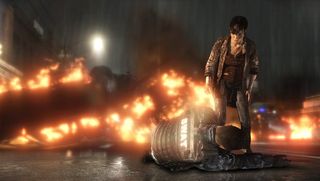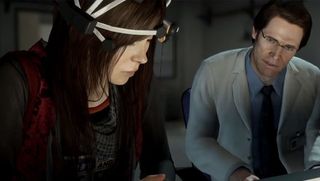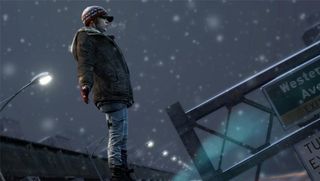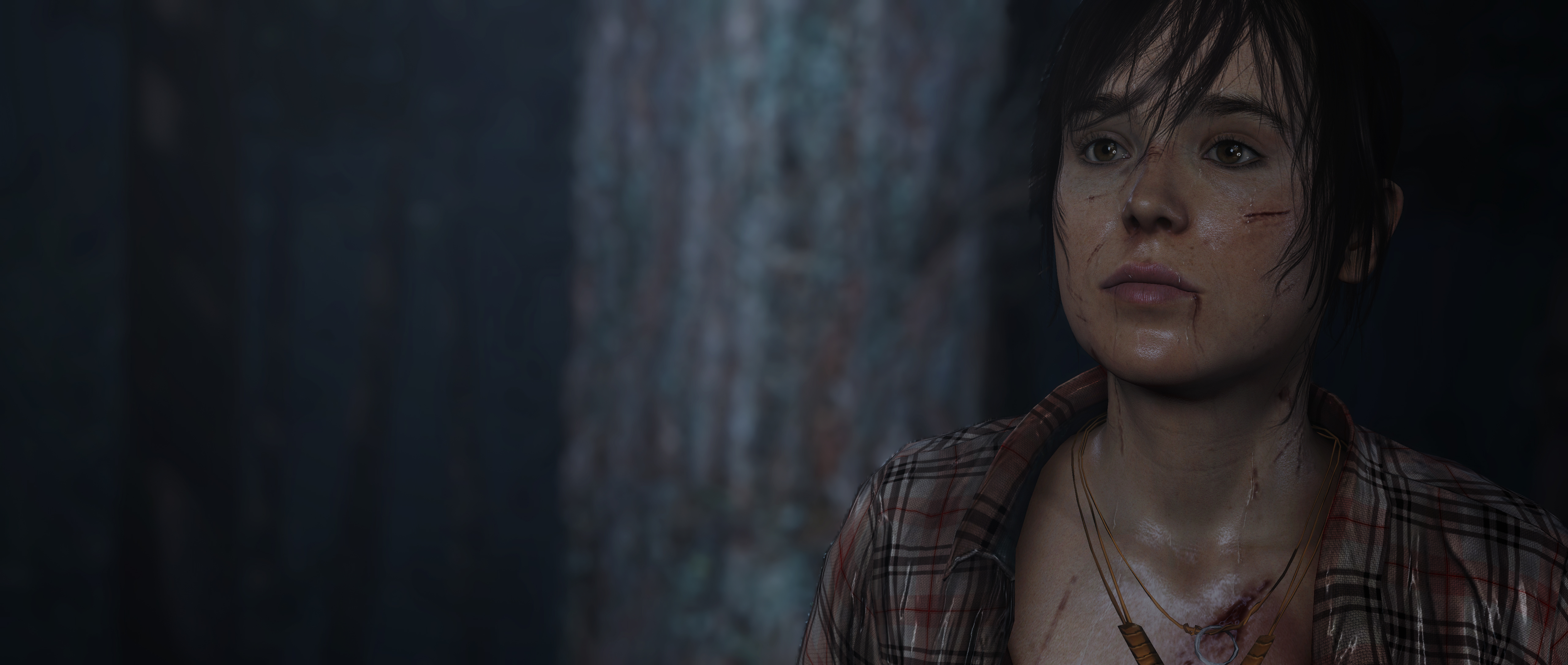GamesRadar+ Verdict
Pros
- +
The stunning amount of choices in the game
- +
The emotion Ellen Page brings to Jodie
- +
The game drips with innovation
Cons
- -
Chemistry between the characters is minimal
- -
Jodie's gameplay isn't rewarding
- -
The writing and plot design sometimes feels weak
Why you can trust GamesRadar+
Beyond: Two Souls, more so than any other big budget game in recent memory, pulls the most out of what the medium is capable of offering the gamer. An incredibly elaborate production of motion-capture, writing, story design, technological achievement, and international collaboration, Beyond shows the consumer what video games can accomplish artistically when they reach out and push the envelope. Yes, there are definitely issues with Beyond, but how it attempts to tell a story through a video game, especially given the maturity and production value it approaches the medium with, is astonishing. Playing the game will be like looking through a crystal ball at a future of possibility.
The premise of the game practically drips potential: it details the life of a young woman, Jodie, who is tied to a spirit from another world. Its name is Aiden, and the two have been connected since Jodie was a young girl. She's the only human with this connection, and her entire life is one of experimentation, probing, prodding, and exploitation--using Aiden to augment her own, very human abilities and traits. Ultimately your story as Jodie is one of a search for happiness, to find someone or somewhere that will give you love and agency.

"Ultimately your story as Jodie is one of a search for happiness..."
Because Beyond is a project that attempts to bridge films and video games, Quantic Dream has placed a far greater emphasis on story than on gameplay. Its execution of this narrative, though, is uneven. Jodie herself as a character is very well done, yet the rest of the cast just wasn't as filled out. They say things and move to action in ways that are unnatural; their motivations are sometimes questionable, and emotional scenes often fall flat because you don’t feel a character’s actions are justified. By the fifth time Jodie gets knocked out by the butt of a machine gun--and doesn’t even acknowledge it after coming around--you start understanding that this game leans much too heavily on suspension of disbelief. Yet one the other end of the spectrum: the choices you can make inside of each conversation are fantastic and robust. Many times during dialogue, the conversation will pause and you will get options for what Jodie can say next. Each option fits well into the flow, and once you choose which path you'll go down, Ellen Page will deliver the line so well that it will feel as though you chose the only correct answer.
Beyond: Two Souls is predominantly motion-captured, which both adds and detracts from the story. Ellen Page and Willem Dafoe play the two title characters Jodie and Nathan, and while in their own right they’re incredible actors, their performance together in Beyond feels a bit disjointed. Page is usually cast as a quieter, more reserved character in films, and this is evident in her performance of Jodie. Her more mellow energy works in most aspects of the game, but the more emotional scenes have trouble translating because of it. This could've been balanced by actors with a more energetic approach, yet the quietly calm disposition of Willem Dafoe means that there's zero chemistry between the two characters on screen. Page and Defoe's chemistry aside, Jodie as a character is able to form nuanced connections with other characters within in the game. One particular moment involves a relatively minor character but yields one of the most powerful moments in Beyond.

"...this game leans much too heavily on suspension of disbelief."
One of Beyond's more innovative components is the way in which it deals with the "failure" condition. You can't die in this game. Instead, and this is something you won't realize until the end, every small thing you "failed" at actually has this interesting butterfly effect that changes Jodie’s path through life. You’ll never know when a simple decision will end up affecting, years later in the story, who you can fall in love with. That is one of the most amazing aspects of Beyond: the way it seamlessly edits together its narrative modules. You may even assume that the story is totally linear, until you talk to someone about their experience with the game. All of your choices propel Jodie down a path that's so filled with detail, you’ll be astounded that there were other possible storylines you missed.
Luckily, because of the way Beyond is structured, replaying sections for a different outcome isn’t all that time-consuming. This is thanks, in part, to the minimal gameplay involved in Beyond. Action is split between two characters: Jodie and Aiden. If you’ve played Heavy Rain, then you’ll be familiar with the movement mechanics of Jodie. They’ve been improved here: you don’t get stuck on corners or suddenly have a wide turning radius, and when you switch directions of movement it feels quite organic. Jodie's actions, though, are hard to master. Interacting with the world is challenging, as contextual clues don’t do a very good job at pointing you to where you need to go. The problem is that you’ll never fully understand what direction you need to respond with, and you’ll spend the entire game just flicking the thumbstick randomly until she finally does what you want her to.

"...one of the most amazing aspects of Beyond: the way it seamlessly edits together its narrative modules."
Aiden, on the other hand, is a first-person experience where you use the thumbsticks to fly him around. He can go through walls, hit objects, kill or control other people; in general, he serves as the puzzle-solving aspect of the game. Because Beyond leans so heavily on the cutscenes and narrative, you’ll never be truly challenged by the gameplay. You may even sometimes wonder why the scene was stopped just so you can complete a single arbitrary task. Yet while his his gameplay is lacking, you'll find yourself oddly drawn to the spirit. The game, of course, doesn't let you in on its origin story right off, and so you'll latch onto the small amounts of personality that they let slip in order to put the puzzle together yourself.
But gameplay isn’t the driving factor of Beyond, which--for better or worse--rejects many traditional constraints of video games to push the boundaries of what a game can be. It tells its story in a unique way, it disregards many gaming tropes that we've come to accept as 'standard'. Beyond offers myriad lessons for other developers to follow and improve upon. Even though this game is rife with innovation, the narrative is still heavy-handed, and that ultimately means that you need to suspend disbelief and fully invest in the story to get the most out of the game. Forgive its flaws and Beyond offers a truly special story-telling experience that you’ll be hard pressed to find anywhere else.
Editor's Note: The above review received minor edits for clarity and consistency following its publication.
More info
| Genre | Other Games/Compilations |
| Description | From the makers of Heavy Rain, Beyond Two Souls is a psychological thriller game where players follow Jodie Holmes, who possesses supernatural powers through a psychic link to an invisible entity. |
| Platform | "PS4","PS3" |
| US censor rating | "Rating Pending","Mature" |
| UK censor rating | "","" |
| Release date | 1 January 1970 (US), 1 January 1970 (UK) |
Zach was once an Associate Editor for Future, but has since moved into games development. He's worked at EA and Sledgehammer Games, but is now Narrative Director on League of Legends and Valorant at Riot Games.
Daredevil: Born Again showrunner teases that the MCU show is "even more grounded" than DC spin-off The Penguin, going "as far as a Disney Plus show has ever gone"
Heart Eyes director describes the new slasher as a rom-com that’s just as "fun and violent" as Friday the 13th: "For me, it was about asking, 'What haven't I seen in a while?'"
The Monkey director explains why it was so important to him to give Stephen King's "chilling" short story a "playful horror" twist: "I think [that] seemed correct for a movie about a toy"
Most Popular


